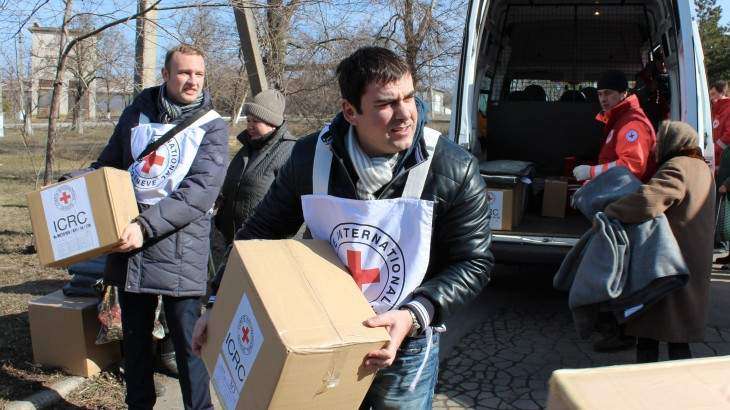The International Committee of the Red Cross (ICRC) welcomes the first Russia-Ukraine detainee release, hoping that it will lay the basis for further dialogue rather than end as a one-time event, the new head of the ICRC regional delegation for Russia, Belarus and Moldova told Sputnik in an interview
MOSCOW (Pakistan Point News / Sputnik - 16th September, 2019) The International Committee of the Red Cross (ICRC) welcomes the first Russia-Ukraine detainee release, hoping that it will lay the basis for further dialogue rather than end as a one-time event, the new head of the ICRC regional delegation for Russia, Belarus and Moldova told Sputnik in an interview.
On September 7, Russia and Ukraine each released 35 convicted and detained persons, including Ukrainian filmmaker Oleg Sentsov, who was sentenced to 20 years in Russia for plotting acts of terrorism in Crimea, and 24 Ukrainian sailors who were accused of violating the Russian maritime border during the Kerch Strait incident. RIA Novosti Ukraine portal head Kirill Vyshinsky also returned to Russia after being held in Ukrainian custody for over a year. Ukrainian President Volodymyr Zelenskyy has said that the next stage of the detainee release is under preparation.
"First we welcome such kind of step and it is first for the people who have been exchanged, they are able to reunite with their families, to come to their countries. So from that perspective it is very positive for us. We hope that it is not stand alone process, that it will lead to more dialogue and understanding between the sides," Ikhtiyar Aslanov said.
According to Aslanov, the humanitarian situation in Ukraine and its breakaway region of Donbas particularly is "one of big concerns for us."
"There are many displaced people on both sides, on government side and non-government side, there are people whose lives have been basically affected completely because of this contact line [between the Kiev-controlled territory and the self-proclaimed republics]," he noted, mentioning that people in the conflict-hit region faced problems with pensions, transactions, damaged infrastructure and poor humanitarian access to some of the areas.
Aslanov stressed that "as independent neutral impartial institution we stand ready to offer our humanitarian services to any sides that see fit our services."
The conflict in Donbas has been raging since 2014, when Ukrainian authorities launched a military operation against the self-proclaimed people's republics of Donetsk and Luhansk, which refused to recognize the new government in Kiev that came to power after what they considered to be a coup.
Kiev and a number of Western countries continue accusing Russia of having a role in the Donbas crisis. Russia, in turn, has repeatedly stressed that it is a ceasefire guarantor nation under the Minsk agreements just like France and Germany and not a party to the conflict. Moscow has also said that it wants to see the neighboring country overcome the internal conflict, which has already claimed lives of about 13,000 people, according to the United Nations.




